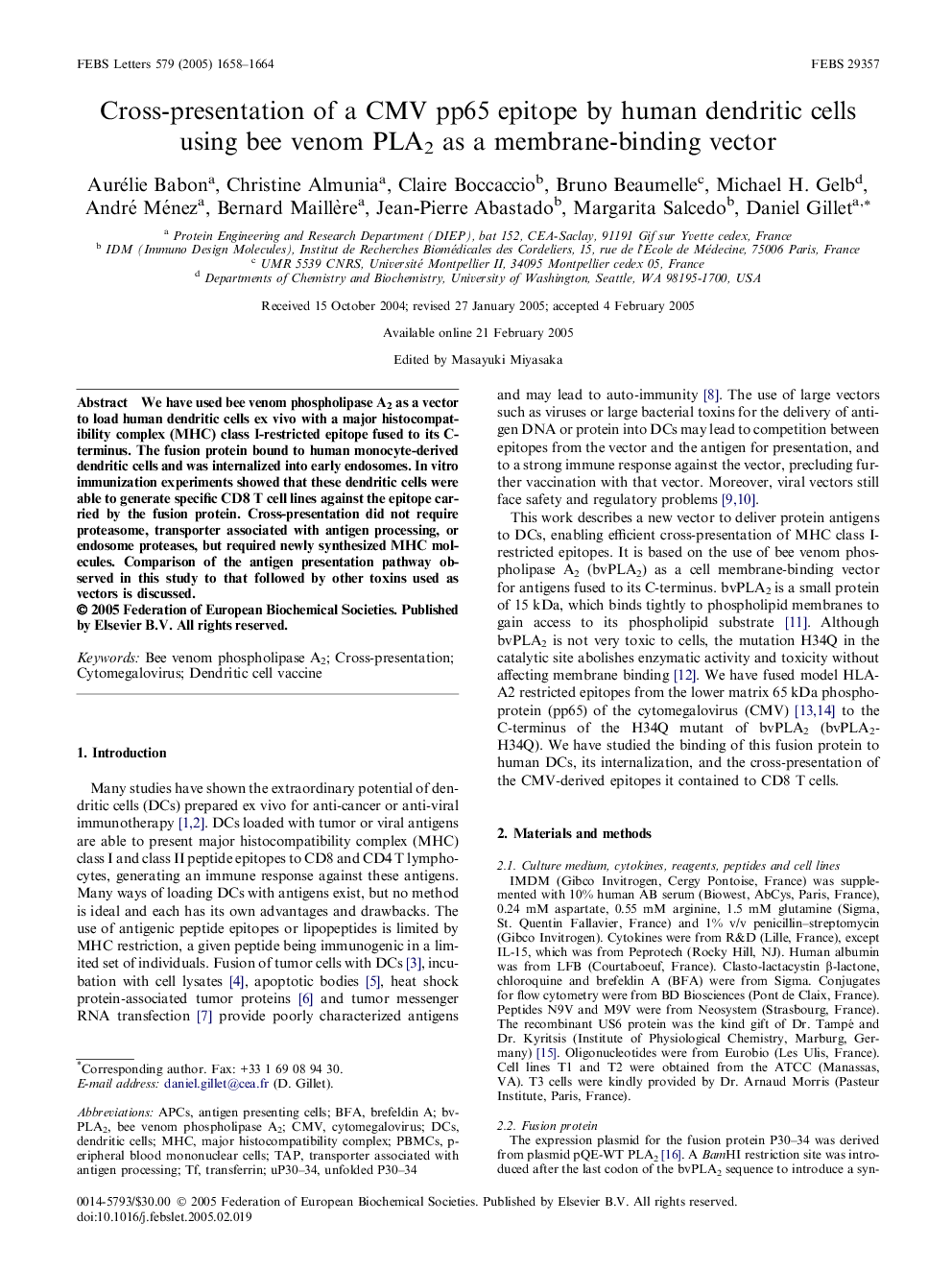| Article ID | Journal | Published Year | Pages | File Type |
|---|---|---|---|---|
| 10872847 | FEBS Letters | 2005 | 7 Pages |
Abstract
We have used bee venom phospholipase A2 as a vector to load human dendritic cells ex vivo with a major histocompatibility complex (MHC) class I-restricted epitope fused to its C-terminus. The fusion protein bound to human monocyte-derived dendritic cells and was internalized into early endosomes. In vitro immunization experiments showed that these dendritic cells were able to generate specific CD8 T cell lines against the epitope carried by the fusion protein. Cross-presentation did not require proteasome, transporter associated with antigen processing, or endosome proteases, but required newly synthesized MHC molecules. Comparison of the antigen presentation pathway observed in this study to that followed by other toxins used as vectors is discussed.
Keywords
Related Topics
Life Sciences
Agricultural and Biological Sciences
Plant Science
Authors
Aurélie Babon, Christine Almunia, Claire Boccaccio, Bruno Beaumelle, Michael H. Gelb, André Ménez, Bernard Maillère, Jean-Pierre Abastado, Margarita Salcedo, Daniel Gillet,
